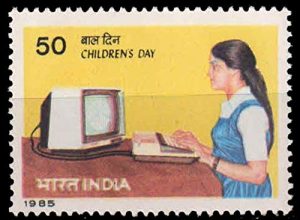
Information or ‘data’ has often been the subject of disparate areas of law and regulation, with a history that can be traced back to the evolution of the printing press, and extending to contemporary debates around digital technologies.
In India, our approach to information regulation has been erratic. We have regulated information as property – in-laws which recognise copyright or other forms of intellectual property; as a component of accountability – in-laws like the Right to Information Act; and as a constituent of personhood – in recognising the right to privacy. Each of these fields of law recognises distinct interests and values within information and its regulation. These values often intersect and are occasionally contested. For example, there is an inherent tension between the right to information and data protection laws that seek to establish informational privacy.
Contemporary networked technologies have made the generation and processing of vast amounts of information possible – leading to new possibilities of ‘data-driven decision-making’ or ‘algorithmic governance’ by private and public actors alike. The Government of India’s Aadhaar project has been emblematic of this, with information technologies being used to enumerate, identify, and classify citizens in ways that abridge expectations of autonomy, dignity, and privacy. Automated profiling by private actors using personal information has similarly led to the spectre of hidden discrimination and inequity.
These systems defy categorization across fields of private and public law –databases of personal information may be subject to both intellectual property protection as well as informational privacy law, with conflicting goals and interests. Private actors may supply the algorithmic tools which governments utilise on their citizens – potentially circumventing its obligations for transparency.
Across applications, algorithmic governance and decision-making systems are being implemented without being grounded in the principles of due process, justice, and equity. We are now faced with questions about the appropriate role and shape of legal regulation when concerned with algorithmic governance and new information technologies under the umbrella of Artificial Intelligence.
Are there principles or values which have historically informed the governance of information in India? What are the competing values in the governance of information, and how should these be measured against each other? What constitutional and administrative law principles can we look to for a just and equitable approach towards information governance? What regulatory structures could Indian law be inspired from other jurisdictions which have grappled with these questions?
In essence – what should a public law of information for India look like?
These are some of the questions that we seek to address through the course of the project: A Public Law of Information for India.
The focus of the project will be to identify core principles that will govern the collection, storage and use of personal data and inform the future of a public law of information in India that regulates algorithmic governance. Our key outputs would include:
- Short writings and media projects that will engage with and respond to the developments around these themes.
- An edited volume of cutting-edge research papers that will bring together academics and practitioners across disciplines. This will reflect on specific themes germane to the legal systems and information governance.
Related:

